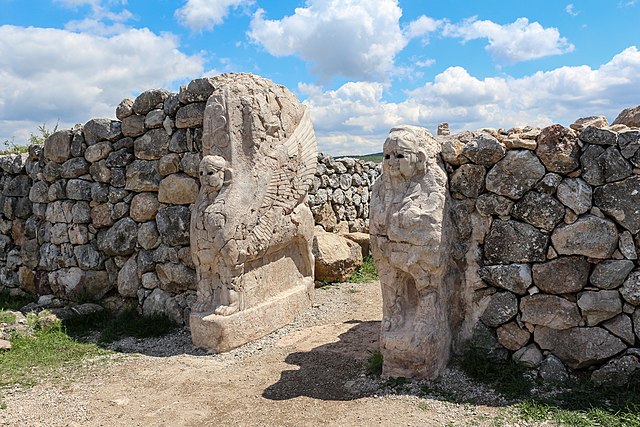Turkey is a founding member of the OECD and G20. The country's economy ranked as the 17th-largest in the world and 7th-largest in Europe by nominal GDP in 2023. It also ranked as the 11th-largest in the world and 5th-largest in Europe by PPP in 2023. According to the IMF, as of 2022, Turkey had an upper-middle income, mixed-market, emerging economy. Turkey has often been defined as a newly industrialized country since the turn of the 21st century. The country is the fourth most visited destination in the world, and has over 1,500 R&D centres established both by multinational and national firms. Turkey is among the world's leading producers of agricultural products, textiles, motor vehicles, transportation equipment, construction materials, consumer electronics, and home appliances.
Levent business district in Istanbul
Turkey is a founding member of the OECD (1961) and G20 (1999)
The Atatürk Dam is the largest of the 22 dams in the Southeastern Anatolia Project. The program includes 22 dams, 19 hydraulic power plants, and the irrigation of 1.82 million hectares of land. The total cost of the project is estimated at $32 billion.
Turkish automotive companies like TEMSA, Otokar and BMC are among the world's largest van, bus and truck manufacturers.[citation needed]
Turkey, officially the Republic of Türkiye, is a country mainly in Anatolia in West Asia, with a smaller part called East Thrace in Southeast Europe. It borders the Black Sea to the north; Georgia, Armenia, Azerbaijan, and Iran to the east; Iraq, Syria, and the Mediterranean Sea to the south; and the Aegean Sea, Greece, and Bulgaria to the west. Turkey is home to over 85 million people; most are ethnic Turks, while ethnic Kurds are the largest ethnic minority. Officially a secular state, Turkey has a Muslim-majority population. Ankara is Turkey's capital and second-largest city; Istanbul is its largest city, and its economic and financial center, as well as the largest city in Europe. Other major cities include İzmir, Bursa and Antalya.
Some henges at Göbekli Tepe were erected as far back as 9600 BC, predating those of Stonehenge by over seven millennia.
The Sphinx Gate of Hattusa, the capital of the Hittites
The Temple of Zeus in the ancient city of Aizanoi in Phrygia
The Sebasteion of Aphrodisias, a city named after Aphrodite, the Greek goddess of beauty. In 2017, it was inscribed on the UNESCO World Heritage Site list.




![Turkish automotive companies like TEMSA, Otokar and BMC are among the world's largest van, bus and truck manufacturers.[citation needed]](https://upload.wikimedia.org/wikipedia/commons/thumb/6/69/Otokar_Territo_U_IAA_2016_%281%29_Travelarz.JPG/640px-Otokar_Territo_U_IAA_2016_%281%29_Travelarz.JPG)



